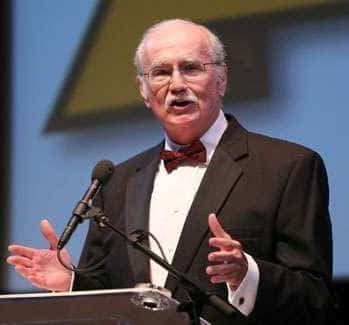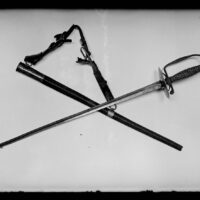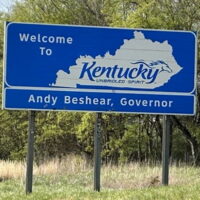In a recent radio interview, I was asked if I considered myself to be “The Dean of Kentucky Derby Journalists.” I had to admit that I had never thought about it like that.

But since I don’t think there’s anybody around who has covered more than my 52, I guess maybe I am Dean Reed, with a Ph.D. in Derbyology. Has a kind of nice ring to it, right?
If I am to assume this lofty position, I must do it seriously because my main responsibility will be to guard the Derby’s history, both the good and bad of it. And there has been some bad, which almost goes along with being the world’s most famous horse race, an event that generates millions of gambling dollars worldwide.
My friend Dave Kindred recently sent me a fascinating piece by Jon Wortheim of Sports Illustrated. It’s about the mysterious events surrounding trainer Johnny Campo and Pleasant Colony’s win in the 1981 Derby. His veterinarian, Joyce Runkle, was found dead months after the race, possibly murdered.
I also see there’s a book on the market about the 1988 Derby won by the filly Winning Colors. I have ordered it out of curiosity because I was close to the filly that Derby. But apparently, the book talks about a gambling scandal involving a Mexican cartel.
And then, of course, there was the 1968 Derby won by Dancer’s Image. However, he was disqualified after the Derby because a then-illegal medication was detected in his post-race urine test. Whodunnit? We still don’t know. The owner, trainer, and veterinarian all pointed fingers at each other and others.
But I can tell you that although Dancer’s Image was disqualified and moved to last, he always will be the Derby winner in this Dean’s educated opinion.
Thank heaven, however, the scandals have been few and far between.
In my role as Dean, I’m frequently asked questions about what I’ve seen in my 52 years of covering the race. What was the best Derby I covered? Who was the best horse or trainer or jockey? The greatest upset?
I answer the questions as best I can, but I often equivocate. How do you compare horsemen and horses of different eras? I’m not sure there is any such thing as a “best” in any category.
For example, consider Secretariat.
One absolute is that he ran the greatest Triple Crown series ever in 1973. He set record times in each of the races. His 31-length victory in the Belmont Stakes is still a signature performance that raises goosebumps on the skin of even people who don’t particularly follow horse racing.
But Secretariat lost five times, including twice after his historic Triple Crown. So how does his 16-of-21 career record compare with, say, Native Dancer’s 21-of-22? Or Citation’s 27-of-29 for the first two years of his career? Or Man o’ War’s 20-for-21?
Man o’ War didn’t run in the 1920 Derby because owner Samuel Riddle didn’t like racing in Kentucky. Besides, that year’s Derby was run too close to the Preakness, which Riddle valued more than the Derby. He won the Preakness easily and then, as the 1-to-20 favorite, won the Belmont Stakes by 20 lengths over Donnaconna, the only other horse in the field.
The biggest Derby upset?
My Dean’s selection is Dark Star over Native Dancer in 1953. It turned out to the only loss of the Dancer’s career. He was bumped hard going into the first turn and taken all over the track by jockey Eric Guerin, but still came roaring down the stretch to hit the finish line only a head back of Dark Star.
Best Derby jockey?
Well, you could certainly make a case for Eddie Arcaro, who won the race five times, mostly for Calumet Farm. But you have to eliminate Bill Shoemaker, who misjudged the finish line aboard Gallant Man in the 1957 Derby. He stood up briefly in the saddle and couldn’t recover in time to catch Calumet longshot Iron Liege.
If your Dean had to pick one, I’d take Bill Hartack, who won the Derby five times (Iron Liege in ’57, Venetian Way in 1960, Decidedly in ’62, Northern Dancer in ’64, and Majestic Prince in ’69).
He made a lot of enemies in the media because he was arrogant and condescending. He stopped doing interviews somewhere in the early ‘60s unless he was paid. But even his critics had to admit that he rode the big races better than anyone.
Best trainer?
So many are deserving. Your Dean is thinking of James “Sunny Jim” Fitzsimmons, Ben A. Jones, Laz Barrera, Woody Stephens, Charlie Whittingham, Carl Nafzger, Billy Turner, and D. Wayne Lukas.
But I have to give the nod to Bob Baffert, the laid-back Californian who has won the Derby five times since finishing a close second to Grindstone in 1996 with Cavonnier.
His Derby winners are Silver Charm in 1997, Real Quiet in 1998, War Emblem in 2002, American Pharoah in 2015, Justify in 2018, and Authentic last year. Both Pharoah and Justify won the Triple Crown.
Baffert was, and still is, California-cool. He stands out in a crowd with his prematurely white hair, tinted glasses, and jeans. He and Lukas arguably are the best ambassadors in Derby history. Both were always accessible to the media, which loved their quick wits, their senses of humor, and their ability to talk about a complicated sport in easy-to-understand terms.
Finally, best Derby owner?
It’s difficult not to pick Calumet Farm, which has won the roses eight times. But I’m partial to individuals such as William T. Young, Mike Pegram, brothers Seth and Arthur Hancock, Penny Tweedy, and Mrs. Frances Genter.
Now I must go to study this year’s field again. Can Known Agenda overcome the No. 1 post? Can Baffert do it again with Medina Spirit? Is Essential Quality a potential Triple Crown winner?
A Dean’s work is never done.
Billy Reed is a member of the U.S. Basketball Writers Hall of Fame and the Kentucky Journalism Hall of Fame, among other honors. He’s covered sports for more than 40 years and is considered among the most knowledgeable writers on the Kentucky Derby. He’s the author of “Last of a BReed.” This column first ran in KyForward.
Billy Reed is a member of the U.S. Basketball Writers Hall of Fame, the Kentucky Journalism Hall of Fame, the Kentucky Athletic Hall of Fame and the Transylvania University Hall of Fame. He has been named Kentucky Sports Writer of the Year eight times and has won the Eclipse Award three times. Reed has written about a multitude of sports events for over four decades and is perhaps one of the most knowledgeable writers on the Kentucky Derby. His book “Last of a BReed” is available on Amazon.






